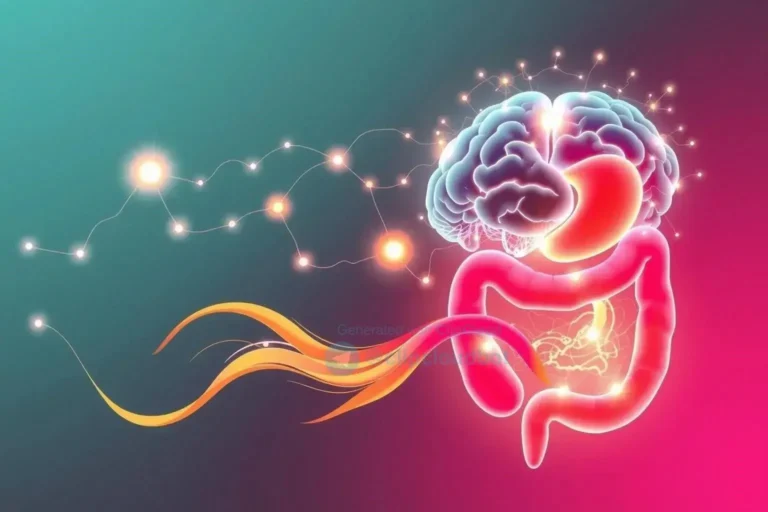Menopause Management: A Holistic Approach to Midlife Wellness
Navigating menopause requires a comprehensive strategy that addresses the multifaceted changes occurring within the body and mind. This holistic approach considers not only physical symptoms but also emotional and psychological well-being. It emphasizes individualized care‚ recognizing that each woman experiences menopause differently. By integrating lifestyle adjustments‚ complementary therapies‚ and conventional medical treatments‚ women can embrace this life stage with confidence and vitality. This journey towards midlife wellness empowers women to prioritize self-care and make informed choices for optimal health and happiness.
Understanding Perimenopause and its Impact
Perimenopause‚ the transitional phase leading up to menopause‚ marks a significant shift in a woman’s reproductive life. It’s a period characterized by fluctuating hormone levels‚ primarily estrogen and progesterone‚ which can trigger a wide range of physical and emotional changes. Recognizing the signs and symptoms of perimenopause is crucial for women to understand what their bodies are experiencing and to seek appropriate support and management strategies.
One of the hallmark signs of perimenopause is irregular periods. Cycles may become shorter or longer‚ heavier or lighter‚ and sometimes skipped altogether. These changes are a direct result of the ovaries gradually producing less estrogen. Other common physical symptoms include hot flashes‚ characterized by sudden sensations of intense heat‚ often accompanied by sweating and flushing. Night sweats‚ similar to hot flashes but occurring during sleep‚ can disrupt sleep patterns and lead to fatigue. Vaginal dryness‚ another common symptom‚ can result in discomfort during intercourse and increased susceptibility to vaginal infections. Changes in sleep patterns‚ including insomnia and difficulty staying asleep‚ are also frequently reported during perimenopause.
Beyond the physical changes‚ perimenopause can also significantly impact a woman’s emotional well-being. Mood swings‚ irritability‚ anxiety‚ and even depression can emerge due to the hormonal fluctuations. These emotional changes can sometimes be challenging to navigate and may affect relationships and overall quality of life. Furthermore‚ some women experience difficulty concentrating or memory lapses‚ often referred to as “brain fog‚” during this transitional period. This cognitive impact can be frustrating and may interfere with daily activities.
Understanding the impact of perimenopause on both physical and emotional health is essential for women to effectively manage this life stage. Seeking support from healthcare professionals‚ family‚ and friends can provide valuable resources and guidance during this time of transition. By recognizing the symptoms and seeking appropriate support‚ women can navigate perimenopause with greater awareness and empower themselves to make informed decisions about their health and well-being. Open communication with healthcare providers about symptoms and concerns is vital for developing personalized management strategies. This proactive approach can help women mitigate the impact of perimenopause and transition into menopause with greater ease and confidence.
Estrogen Therapy Reevaluation: Benefits and Risks
Estrogen therapy‚ often prescribed to manage menopausal symptoms‚ has been the subject of ongoing reevaluation in recent years. While it can offer significant relief from hot flashes‚ night sweats‚ and vaginal dryness‚ it’s crucial for women to understand both the potential benefits and risks associated with this treatment. A thorough discussion with a healthcare provider is essential to make informed decisions about whether estrogen therapy is the right choice.
One of the primary benefits of estrogen therapy is its effectiveness in alleviating vasomotor symptoms‚ such as hot flashes and night sweats. For women experiencing severe and disruptive hot flashes‚ estrogen can provide significant relief‚ improving sleep quality and overall well-being. Furthermore‚ estrogen therapy can help alleviate vaginal dryness and discomfort‚ improving sexual health and reducing the risk of vaginal infections. It can also help maintain bone density‚ reducing the risk of osteoporosis‚ a significant concern for women during and after menopause.
However‚ estrogen therapy is not without risks. Studies have shown a potential increased risk of blood clots‚ stroke‚ and certain types of breast cancer in some women using estrogen therapy. The specific risks vary depending on factors such as the type of estrogen used‚ the dosage‚ the woman’s individual health history‚ and whether or not progestin is also prescribed. It’s important to note that the absolute risks remain relatively low for most women‚ and the benefits may outweigh the risks for some individuals experiencing severe menopausal symptoms.
The decision of whether or not to pursue estrogen therapy should be made in consultation with a healthcare provider. A thorough evaluation of a woman’s medical history‚ current health status‚ and symptom severity is crucial for determining the most appropriate course of action. Alternative treatments and lifestyle modifications may be considered for women who are not suitable candidates for estrogen therapy or who prefer to explore other options. Regular monitoring and ongoing discussions with a healthcare provider are essential for women undergoing estrogen therapy to assess its effectiveness and manage any potential side effects. Ultimately‚ the goal is to find a personalized approach that addresses individual needs and preferences while minimizing risks and maximizing benefits for overall health and well-being during menopause.
Natural Strategies for Hormonal Balance in Women
For women seeking to support hormonal balance during menopause‚ various natural strategies can complement conventional medical approaches. These strategies often focus on lifestyle modifications‚ dietary adjustments‚ and the use of certain herbal remedies. While these methods may not entirely eliminate menopausal symptoms‚ they can offer valuable support and contribute to overall well-being. It’s crucial to consult with a healthcare professional before incorporating any herbal remedies‚ especially if you have pre-existing health conditions or are taking other medications.
Dietary changes can play a significant role in hormonal balance. Consuming a diet rich in fruits‚ vegetables‚ and whole grains provides essential nutrients that support overall health. Foods containing phytoestrogens‚ plant-based compounds with estrogen-like effects‚ may also offer some relief from menopausal symptoms. Soy products‚ flaxseeds‚ and whole grains are good sources of phytoestrogens. Additionally‚ maintaining a healthy weight through regular exercise and balanced nutrition can help regulate hormone levels and minimize the severity of symptoms.
Regular exercise is crucial for overall health during menopause. Engaging in both cardiovascular activities and strength training helps maintain bone density‚ improves mood‚ and promotes better sleep. Stress management techniques‚ such as yoga‚ meditation‚ and deep breathing exercises‚ can also be beneficial in managing hormonal fluctuations and reducing anxiety. These practices help regulate the body’s stress response‚ which can influence hormone levels.
Certain herbal remedies have traditionally been used to support hormonal balance in women. Black cohosh‚ red clover‚ and dong quai are among the herbs that have shown some promise in alleviating menopausal symptoms. However‚ the scientific evidence supporting their effectiveness is still limited‚ and it’s essential to approach their use with caution. Consulting with a qualified herbalist or naturopathic doctor can provide guidance on the safe and appropriate use of herbal remedies. It’s crucial to remember that natural strategies are not a replacement for medical advice. They should be considered complementary approaches to be used in conjunction with guidance from a healthcare professional. A holistic approach‚ combining lifestyle modifications‚ dietary changes‚ and potentially herbal remedies under the supervision of a healthcare provider‚ can empower women to effectively manage hormonal balance and navigate the menopausal transition with greater ease and well-being.
Finding Menopause Symptoms Relief: Lifestyle and Support
Managing menopause symptoms often involves a combination of lifestyle adjustments and seeking appropriate support. While medical interventions can be helpful‚ many women find significant relief through simple yet effective lifestyle changes. These changes can address various symptoms‚ from hot flashes and sleep disturbances to mood changes and vaginal dryness. Building a strong support network is also crucial for navigating this life transition with greater ease and confidence.
Addressing hot flashes and night sweats can involve practical strategies such as dressing in layers‚ keeping the bedroom cool‚ and identifying and avoiding triggers like spicy foods or caffeine. Regular exercise‚ particularly aerobic activities and strength training‚ can also help regulate body temperature and reduce the frequency and intensity of hot flashes. For sleep disturbances‚ establishing a regular sleep schedule‚ creating a relaxing bedtime routine‚ and ensuring a dark and quiet sleep environment can promote better sleep quality;
Managing mood changes and emotional well-being during menopause can involve incorporating stress-reducing practices such as yoga‚ meditation‚ or deep breathing exercises. Connecting with friends and family‚ engaging in hobbies‚ and seeking support groups can provide emotional support and reduce feelings of isolation. For vaginal dryness‚ using over-the-counter lubricants or vaginal moisturizers can provide relief during intercourse. Talking to a healthcare provider about prescription options may also be beneficial.
Building a strong support network is essential during menopause. Connecting with other women going through similar experiences can provide a sense of community and shared understanding. Support groups‚ online forums‚ and local community centers can offer opportunities to connect with others and share experiences. Open communication with family and friends about the challenges of menopause can also foster understanding and create a supportive environment. Seeking guidance from healthcare professionals‚ therapists‚ or counselors can provide valuable resources and personalized strategies for managing menopausal symptoms. By embracing lifestyle changes and building a strong support network‚ women can navigate the menopausal transition with greater resilience and well-being‚ embracing this new chapter with confidence and a positive outlook.






